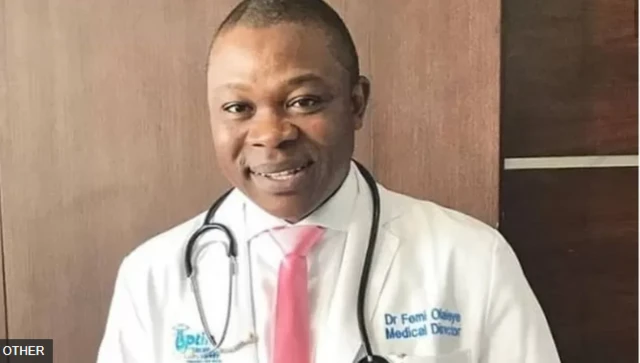A controversial Court of Appeal ruling has ignited fierce debate over Nigeria’s commitment to combating domestic violence after overturning the life imprisonment sentence of Dr. Femi Olaleye, a medical director accused of sexually abusing his wife’s teenage niece. The Lagos State Government has now escalated the case to the Supreme Court, highlighting growing concerns about the protection of vulnerable individuals in sexual abuse cases.
The case, which began in November 2021, centers on allegations that Dr. Olaleye sexually abused his 16-year-old niece-in-law who had moved into his home in 2019 following her grandmother’s death. The initial investigation appeared strong, with Dr. Olaleye reportedly making confessional statements at the Anthony Village Police Division and the Gender Section of the Lagos State Police Command.
During the original trial, the survivor testified that Dr. Olaleye introduced her to pornography at age 15 before progressing to sexual abuse, including both oral and penetrative assault. The prosecution’s case was further strengthened by expert testimony confirming the abuse and documentation of Dr. Olaleye’s admission to a rehabilitation center for sex addiction at Grace Cottage Clinic in Ilupeju, Lagos.
Justice Rahman Oshodi of the Domestic and Sexual Violence Court in Ikeja found the evidence compelling enough to hand down a life sentence, describing Dr. Olaleye as a “dangerous offender” who showed no remorse. However, the Appeals Court’s decision to overturn this verdict has raised serious questions about the handling of sexual abuse cases in Nigeria’s judicial system.
The reversal has particularly troubling implications given Dr. Olaleye’s alleged history. Reports suggest he previously fled the United Kingdom following similar allegations while working at Darrent Valley Hospital in Kent. Additional claims of him possessing recordings of sexual abuse of female patients, allegedly used for blackmail, add another disturbing dimension to the case.
The Appeals Court’s decision to describe the survivor’s testimony and other witness statements as “tainted” and “unreliable” has sparked concern among advocates fighting domestic violence. This ruling comes despite the existence of emails in which Dr. Olaleye reportedly sought forgiveness from family members for his actions, and his documented, though incomplete, treatment for sex addiction.
Lagos State has earned recognition as a leader in combating domestic and sexual violence in Nigeria, but experts warn that this ruling could undermine years of progress. The case has become a critical test of the Nigerian judiciary’s resolve in protecting abuse survivors and maintaining accountability for perpetrators.
The Supreme Court now faces the challenge of weighing complicated evidence, including the defendant’s initial confessions, expert testimony, and the survivor’s consistent account against the Appeals Court’s concerns about evidence reliability. Their eventual ruling will likely have far-reaching implications for how similar cases are handled in the future.
As the legal battle continues, advocates emphasize that the outcome of this case could either strengthen or seriously weaken efforts to combat domestic violence in Nigeria. The Supreme Court’s decision will not only affect this specific case but could also influence how future cases of sexual abuse are prosecuted and defended throughout the country.
The controversy surrounding this case underscores the ongoing challenges in achieving justice for survivors of sexual abuse, particularly when the accused holds a position of authority or trust. It also highlights the critical importance of maintaining robust legal protections for vulnerable individuals while ensuring due process is followed in the judicial system.



